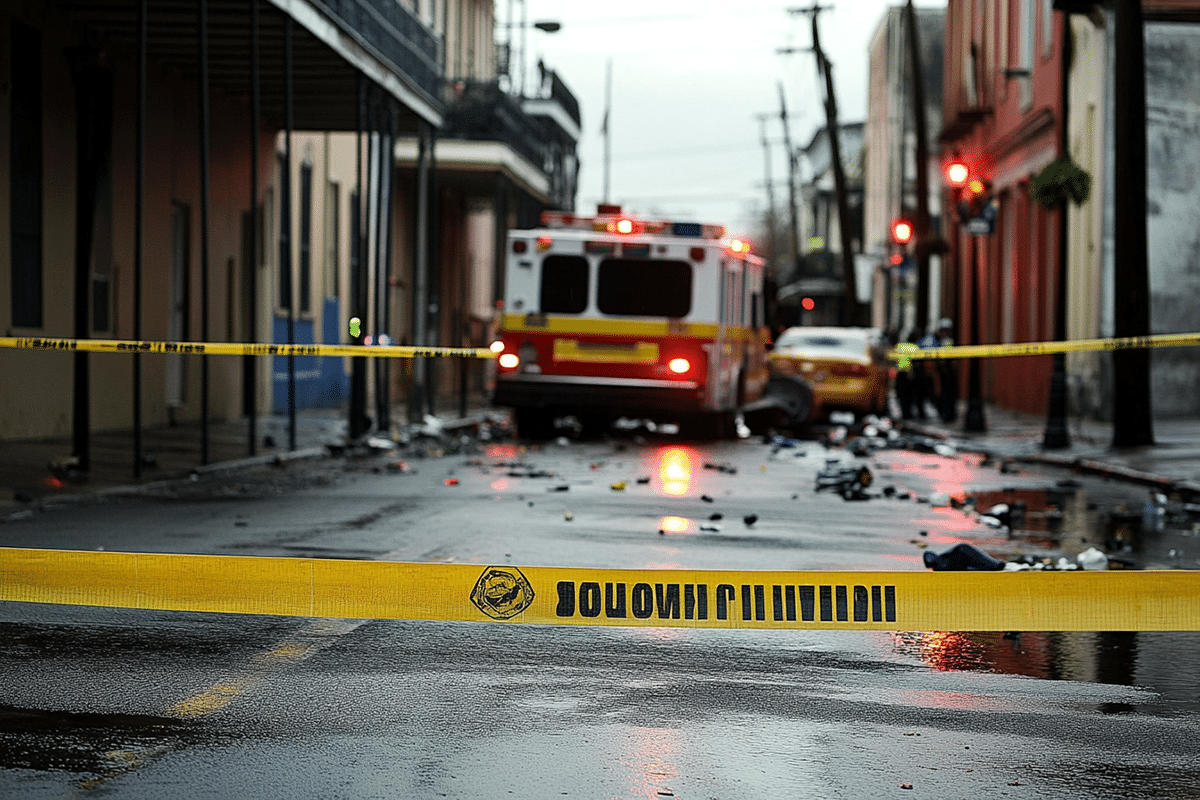An early and erroneous report by Fox News about the New Orleans terror attack has sparked confusion and misinformation, influencing political dialogue in the aftermath of the deadly event. The report, attributed to anonymous sources, suggested that the suspect’s truck had crossed the US-Mexico border two days prior to the attack, implying a foreign connection. However, the truth was far different: the suspect was a US citizen and Army veteran, with no link to illegal immigration.
The misinformation began during the 10 a.m. hour on Wednesday, when Fox aired a segment claiming that the truck involved in the New Orleans attack had entered the US via Eagle Pass, Texas, just two days before the incident. The network’s coverage left viewers with the impression that the attack might have been carried out by someone from outside the country. This was despite the fact that, at the time of the broadcast, the suspect had not yet been publicly identified, and key details about the investigation were still unfolding.
Eight minutes after the Fox segment aired, President-elect Donald Trump issued a statement about “criminals coming in” from other countries, seemingly influenced by the false report. While Trump did not mention Fox by name, he has long been known to rely on the network for information, and many of his political allies and family members quickly adopted the same narrative. His son, Donald Trump Jr., shared the report on social media, condemning the situation as a “parting gift” from President Biden and calling for the border to be shut down. Similarly, Rep. Marjorie Taylor Greene demanded action, tying the attack to what she described as “migrant terrorists.”
Fox News issued a correction about 90 minutes later, revealing that the truck involved in the attack had actually crossed the border two months earlier and had been rented by a different individual at the time. The initial report, which linked the suspect to the border, was completely irrelevant to the actual facts. Nevertheless, the damage was done: references to the false border connection continued to circulate on social media, and the initial misinformation persisted on Fox’s website for some time.
Ironically, Trump continued to criticize the “Fake News Media” for failing to understand the threat posed by illegal immigration, despite the fact that the suspect was a US citizen. His remarks seemed to be based entirely on the erroneous Fox report, demonstrating the potential dangers of rushed reactions in an information landscape where facts are sometimes overshadowed by sensationalism.
In a bizarre turn of events, a Fox reporter later acknowledged Trump’s comments about “criminals coming in” from other countries, but clarified that the New Orleans attacker had not entered the US from abroad. However, the report did not highlight that Fox had been the source of the false information that had prompted Trump’s remarks in the first place.
As the story unfolded, Republican lawmakers on Fox continued to raise concerns about the southern border, even though there was no evidence linking the attack to immigration. The episode highlights the consequences of unverified reports in a media ecosystem where misinformation can quickly shape public discourse, particularly when influential figures like Trump amplify it.





